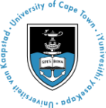UCT defends stance on artistic freedom after Goldblatt pulls out
Cape Town - The University of Cape Town has defended its protection of freedom of artistic expression, after the David Goldblatt Collection chose to move its collection to Yale University in the US.
Goldblatt recently told UCT management that he wants to move his collection from the university after eight years, saying the university could no longer protect freedom of expression, artistic freedom and the rights of artists on the campus, a UCT statement said last week.
The university said it understood Goldblatt's decision.
"The Goldblatt Collection is a South African heritage treasure, it includes 18 archival boxes of photographic prints, transparencies, negatives and digital items representing his oeuvre, including portraiture and his work on various assignments.
"We regret that Mr Goldblatt could not be persuaded out of his view that freedom of expression, artistic freedom and rights of artists were no longer protected at UCT."
UCT will continue to promote, protect, attract and collect artistic collections and work with artists into the future, it said.
"The institution, the UCT libraries, and the faculties working in this field are committed to freedom of expression, artistic freedom and the rights of artists.
"UCT commits itself to intellectual honesty, rigour in debate, openness to alternative ideas and respect for other views, ways of being, beliefs and opinions as stipulated in the university’s statement of values.
"We promote and protect academic freedom and freedom of expression, including the creation of spaces for contestation of ideas."
The university said its own values, guided by the Library and Information Association of South Africa, will always stand for the free flow of information, the support of intellectual freedom and not exercising censorship.The university wished Goldblatt and the collection well and hoped both go from strength to strength.
Text of UCT's statement:
UCT statement on The David Goldblatt Collection
24 February 2017
The University of Cape Town (UCT) proudly housed The David Goldblatt Collection from 2009 until this week. The Goldblatt Collection is a South African heritage treasure, it includes 18 archival boxes of photographic prints, transparencies, negatives and digital items representing his oeuvre, including portraiture and his work on various assignments.
The UCT executive has been in discussion with Mr Goldblatt recently about his wish to move the collection from UCT to Yale University. We regret that Mr Goldblatt could not be persuaded out of his view that freedom of expression, artistic freedom and rights of artists were no longer protected at UCT. We respect and understand his decision. UCT will continue to promote, protect, attract and collect artistic collections and work with artists into the future.
The institution, the UCT Libraries, and the faculties working in this field are committed to freedom of expression, artistic freedom and the rights of artists. UCT commits itself to intellectual honesty, rigour in debate, openness to alternative ideas and respect for other views, ways of being, beliefs and opinions as stipulated in the university’s statement of values. We promote and protect academic freedom and freedom of expression, including the creation of spaces for contestation of ideas.
Guided by the university’s statement of values and the Library and Information Association of South Africa (LIASA), the UCT Libraries in particular are committed to academic freedom, openness to alternative ideas, respect for other views, the creation of spaces for the contestation of ideas and adhere to the principles and guidelines of the profession’s Code of Conduct and Ethics, which include:
- Members should ensure the free flow of information, freedom of speech and freedom of expression and the right of access to information.
- Members should not exercise censorship, but facilitate and allow for the free and equal access to all sources of information. Members should support intellectual freedom. We wish Mr Goldblatt and the collection well and hope both go from strength to strength.
Issued by UCT, 24 February 2017

